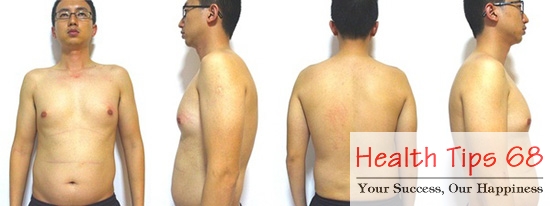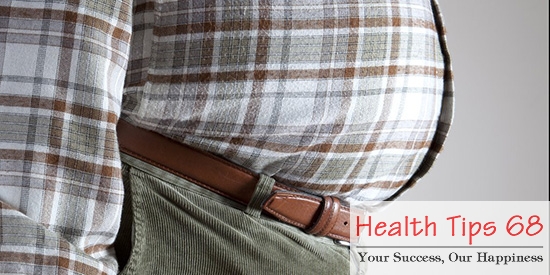Why is belly fat so hard to lose in adults, How long it takes to actually lose belly fat?
Most adults have the wrong idea—or no idea at all—on how to go about losing belly fat. That is one of the reasons why is belly fat so hard to lose in adults .
Getting rid of your belly bulge is important for more than just vanity’s sake. Excess abdominal fat—particularly visceral fat, the kind that surrounds your organs and puffs your stomach into a “beer gut”—is a predictor of heart disease, type 2 diabetes, insulin resistance, and some cancers. If diet and exercise haven’t done much to reduce your pooch, then your hormones, your age, and other genetic factors may be the reason why.
See more : Synthesis Of These Health Tips For Men You Should Know
I’ll explain. But first, know that I used to struggle with belly fat too. Check out these photos of me taken back in 2013:
It took me quite a while—nearly three years, in fact—to finally understand how to lose belly fat (or body fat in general).

The result? Check out these photos of me taken in 2016:

Now, don’t get me wrong. I’m not saying it’s easy.
To be honest, losing belly fat IS hard.
But having the wrong idea—or no idea at all—on how to go about losing belly fat just makes it so much harder.
And the reason it feels so much harder is that you’re putting in A LOT of effort, but seeing ZERO results.
In other words, you’re just spinning your wheels.
And here are the FIVE most common wrong ideas that people have about losing belly fat, that makes it so hard :
why-is-belly-fat-so-hard-to-lose-in-adults-1: You must do TONS of abdominal exercises (e.g. sit-ups, crunches, torso twists, planks, etc.) to “target” tummy fat.
This is one of those myths that refuse to die, thanks to fitness models with rock-hard abs who are paid to promote fancy ab exercises or gadgets on TV and in magazines.
The truth is: Abdominal exercises have no effect on abdominal fat at all.
Don’t believe me?
A study conducted on 24 healthy, sedentary adults aged 18 to 40 found that six weeks of abdominal exercise training alone failed to reduce abdominal fat and other measures of body composition.
Another study done on 40 obese women found that abdominal resistance training besides diet did not reduce abdominal fat thickness compared to diet alone in overweight or obese women.
This is not to say that ab training is useless. Just know that by doing lots of abdominal exercises, you’re just strengthening and improving the muscular endurance of your abs — not “targeting” tummy fat.
So, sorry mate, your 500 sit-ups-a-day isn’t going to cut it. 😉

2: You must do LOTS of cardio / HIIT / spinning / Zumba / (INSERT NAME OF TRENDING WORKOUT) to “burn off” belly fat
Look around you and you’ll see most people relying on exercise to lose belly fat…
…thinking they can burn off that cheeseburger by grinding out an hour of cardio.
…thinking they can get lean by “sweating it out” doing “insane” workouts.
…thinking they can out-exercise their poor eating habits.
The reality?
No matter how much they exercise, they can’t seem to get rid of the flubber.
And the funny thing about this is: people are doing the same thing over and over again, and expecting different results.
(This is interesting to me because while most people know they need to “make a change,” they’re doing the exact opposite!).
The truth is: Diet has a far greater impact on fat loss than exercise.
Don’t get me wrong. Exercise does help in fat loss by increasing your energy expenditure. But think about it:
It takes 20–30 minutes of exercise just to burn 200–300 calories. Yet it only takes a double cheeseburger and a strawberry milkshake to eat 1,000 calories back — not an uncommon feat for people who like to “reward” themselves after a “good” workout.
That’s why exercising is pointless (at least for fat loss) if your diet is out-of-control.
However, when you focus on nailing down your diet first, you’ll see a HUGE difference in your fat loss results.
That said, people tend to focus on the wrong things in their diet. Which brings me to the next point…
3: You must eat “CLEAN” (whatever that means)
Look. You don’t need to “eat clean” to lose belly fat.
Just look at Mark Haub, a professor of human nutrition at Kansas State University.
Over the course of 10 weeks, he limited himself to less than 1,800 calories a day eating a “dirty” junk diet of chips, nutty bars, donuts, cakes, cookies, and sugary cereals.
And guess what happened?
He lost 27 pounds while dropping his body fat from 33.4% to 24.9%!
How is that possible? You wonder.
You see, here’s the truth:
The key to losing fat/weight is to maintain a calorie (energy) deficit — i.e. consume, on average, fewer calories than your body expends — over a meaningful length of time.
A man of Haub’s size would normally consume about 2,600 calories daily. But he limited himself to only 1,800 calories a day.
Simply put, all he did was follow the basic principle of fat loss: He consumed significantly fewer calories than he burned.
That said…I’m not saying you should follow Mark Haub’s example by eating 100% junk food. That’s silly.
What I’m saying is:
If you’re overeating calories, you’re not going to lose belly fat, even if you’re eating “clean,” “healthy,” “whole 30,” or whatever.
4: You must avoid/cut out FATS from your diet — i.e. go on a low-fat diet
Thanks to the fat-phobic era of the 80s and 90s, many people still perceive “low-fat” and “fat-free” food products as healthy options.
But here’s the kicker:
Research has shown that healthy options ironically lead to indulgent eating, because of a mental trap called moral licensing—that is, giving yourself permission to be “bad” because you’ve been “good.”
Unfortunately, going low-fat/fat-free isn’t necessarily “good.” Because low-fat or fat-free doesn’t mean low-calorie or calorie-free.
Here’s the deal: You can limit your fat intake if that’s what you prefer. But if you mindlessly eat excessive calories from low-fat/nonfat foods that are high in carbs and sugar, “bad” things will happen for sure:
- With plenty of fuel (glucose) from carbs, your body HARDLY needs to burn fat stores for energy, i.e. no fat loss.
- As glucose is the body’s preferred fuel, and there’s plenty of it to go around, any traces of fat you do ingest gets stored away immediately.
- Excess glucose that can’t be stored in the body will be converted into fatty acids and stored as fat.
So much for avoiding fat.
5: You must avoid/cut out CARBS / SUGAR from your diet — i.e. go on a low-carb or ketogenic diet
Surprised? I can understand why.
Diet “experts” have been blaming carbs for causing fat gain over the last decade, based on the fact that eating carbs trigger a spike in our insulin levels.
Since insulin is a hormone that hinders fat loss and promotes fat storage, they “conclude” that eating carbs makes us fat by causing our body to store more and burn less fat, due to higher insulin levels.
On the surface, it sounds like it makes sense, but here’s the problem:
These so-called experts “forgot” to mention that:
- Eating protein also raises insulin levels — why don’t they demonize protein as well?
- Your body doesn’t even need insulin to store fat—there are other hormones and processes to get this job done
Đầu tư là gì? Kiến Thức Đầu Tư Chứng Khoán Quan Trọng Nhất Trong Quá Trình Đầu Tư?
Mở tài khoản chứng khoán TechcomBank nhanh chóng, thuận tiện giao dịch, bảo mật tuyệt đối.
Đầu Tư Chứng Khoán Xu Hướng Đầu Tư 2021 Hướng dẫn kiếm tiền từ đầu tư chứng khoán
Khóa Học Đầu Tư Chứng Khoán - Khóa học chứng khoán online (miễn phí) cho người mới bắt



